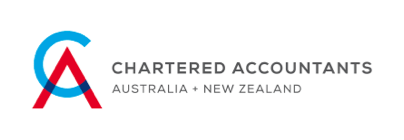Australian strata entities manage millions of dollars in collective funds for residential, commercial, or mixed-use communities. With so much at stake, transparency and compliance are essential. This is where strata audits come in.
Richard Allen, Principal of Allen Audit & Advisory, unpacks the audit process, what auditors look for, and the value audits deliver for committees, managers, and lot owners.
Why strata entities need audits
In Australia, “strata” is the umbrella term for properties where ownership is divided into lots (individual units, apartments, or offices) and common property (shared areas like foyers, gardens, and lifts). These schemes are generally managed by a body corporate (Queensland) or owners’ corporation (New South Wales, Victoria).
Richard says all strata entities are regulated by state-based legislation, which outlines when annual audits are required, or whether entities can choose to opt in to the process.
“These laws, such as the Body Corporate and Community Management Act in Queensland or the Strata Schemes Management Act in New South Wales, require strata entities to keep accurate financial records, maintain proper accounts, and in many cases, have their financial statements independently audited,” says Richard.
“Legal compliance aside, audits also give transparency, help manage risk, and build trust among owners, committees, and other stakeholders. It’s about financial integrity as much as governance.”
Key areas of strata audits
So, what exactly does an auditor check? Richard says there are several critical areas.
“We examine bank reconciliations, levy income, expenditure, sinking fund forecasts, insurance coverage, and GST/BAS compliance,” he says. “We’ll also look at meeting minutes and cross-check bylaws.
“Together, this information gives us a clear picture of an entity’s financial health and whether the scheme is operating correctly, helping to ensure integrity and informed decision-making.”
Benchmarking levies and assessing financial health
Auditors review transactions and benchmark the financial position of the entity.
“We’ll compare levies per lot, analyse sinking fund contributions, review surplus or deficit trends, and check arrears,” Richard says.
“It’s a snapshot of the scheme’s long-term sustainability.”
Common red flags auditors uncover
Richard says strata entity issues can be easy to miss without the help of a detailed audit. “We sometimes find missing bank accounts, unauthorised payments, levy arrears, insurance gaps, or GST/BAS errors,” he explains.
“A lack of segregation of duties is another red flag: that’s where fraud or mismanagement can creep in. Fraud can look like duplicate invoices or unusual payments. While mismanagement could be as simple as expired insurance or poor records.
“Underfunding is another risk, particularly when sinking fund contributions aren’t adequate for future works.”
Preparing for a smooth strata audit
Committees and managers can make audits more efficient with some preparation. “Have your records organised, ensure reconciliations are up to date, provide levy and arrears reports, and share minutes and budgets,” Richard advises.
“Respond quickly to queries and clarify unusual transactions. The more prepared you are, the more value you’ll get out of the audit process.”
Common mistakes that delay audits
When audits take longer than they should, Richard says the causes are usually simple. “Missing records, delayed responses, poor documentation, or lack of access to banking software — these can slow us down,” he says.
“Even confusion over fund allocations can create unnecessary delays.”
Benefits beyond compliance
While audits satisfy legal requirements, their benefits extend far beyond compliance. “They give peace of mind, strengthen financial management, and help detect issues early,” Richard explains.
“They can also improve resale value, demonstrate strong governance, and provide transparency for everyone involved.”
Why use a specialist audit-only firm?
Strata audits require a depth of expertise not every accounting firm offers. “We’re one of the few audit-only firms in Australia,” Richard says.
“That means all our systems, training, and processes are built for auditing. We’re efficient, unbiased, and independent, and we provide year-round, tailored advice that adds real value.
“At the end of the day, a good strata audit gives committees confidence they’re managing funds responsibly. It’s an investment in peace of mind.”
If your strata entity needs an audit, or you’d like advice tailored to your scheme, contact Allen Audit & Advisory.








